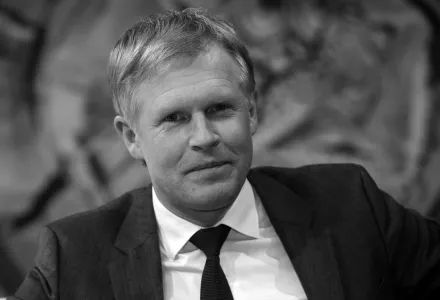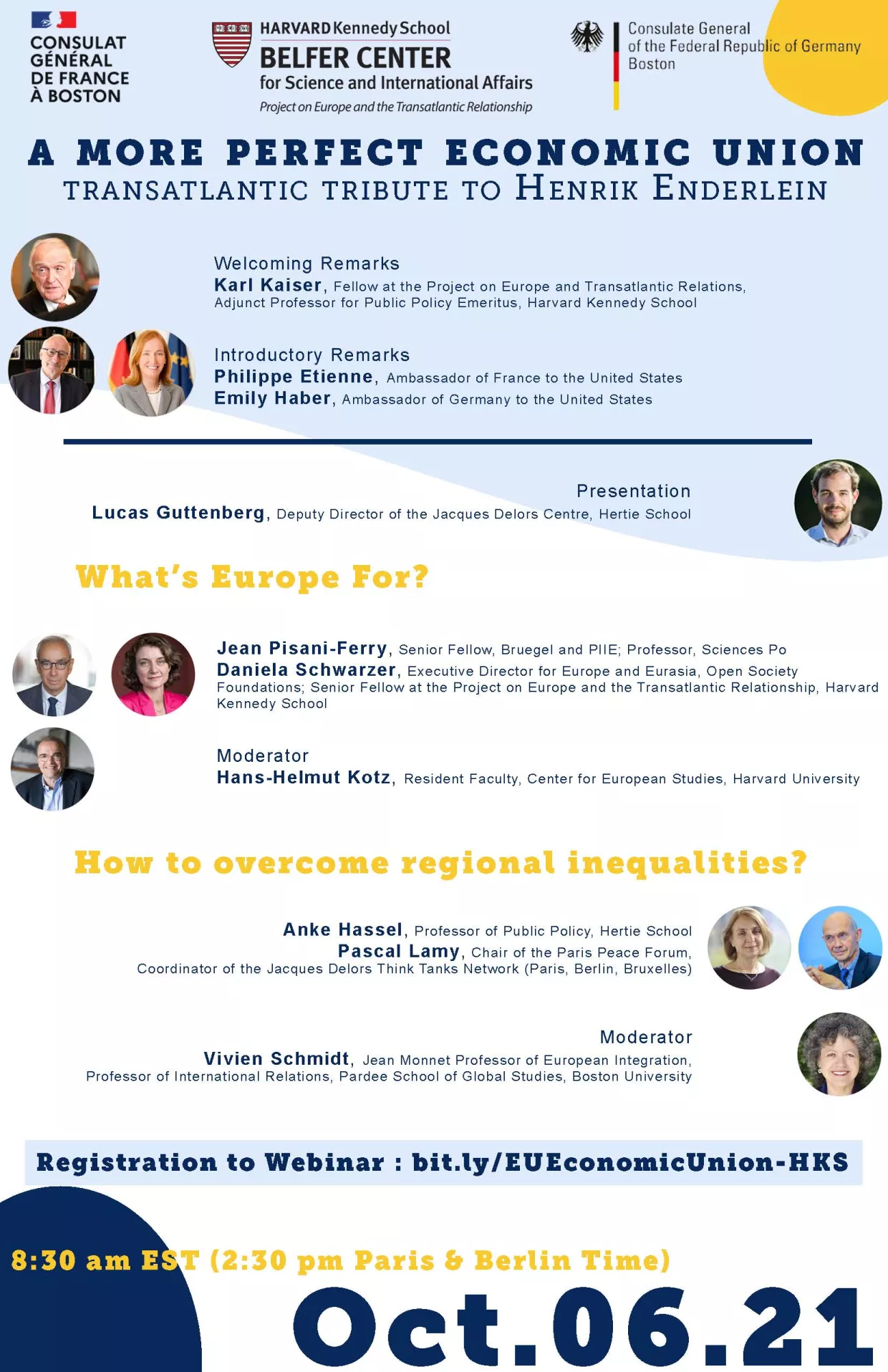A More Perfect Economic Union – A Transatlantic Tribute to Henrik Enderlein
Since Henrik Enderlein tragically passed away on 27 May 2021, at the age of 46, people from across Europe and America have commemorated the life and work of this brilliant economist and thought-leader on economic policy-making, financial crises and fiscal federalism. Henrik Enderlein embodied the best of intellectual exchanges in Europe and America, as an alumnus of Sciences Po, former Pierre Keller Visiting Professor at Harvard, President of the Hertie School of Governance as well as Director of the Jacques Delors Center Berlin.
Please join the Harvard Kennedy School’s Project on Europe and the Transatlantic Relationship, as well as the French and German Ambassadors to the U.S., for a discussion on “A More Perfect Economic Union – A Transatlantic Tribute to Henrik Enderlein” on Wednesday, October 6 from 8:30-10:00 am ET with leading figures from Harvard, Sciences Po, the Hertie School, and the Jacques Delors Institute. Further details can be found below.



